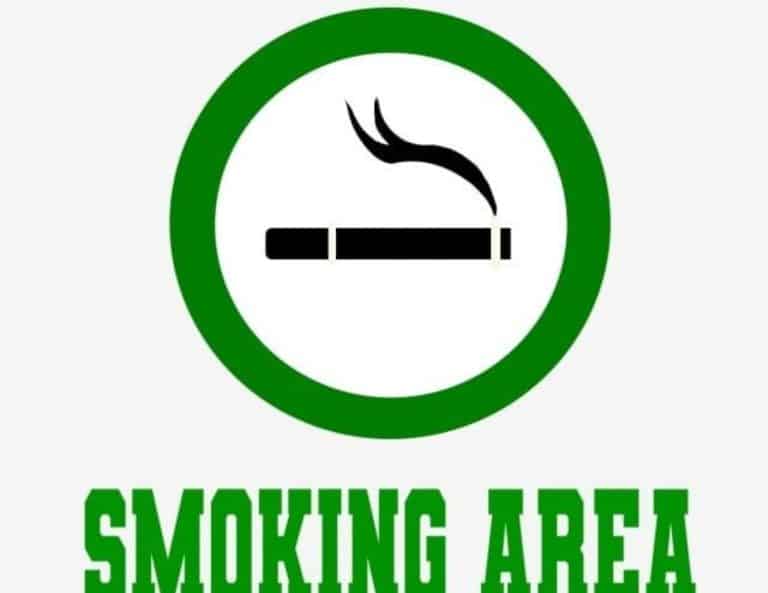Are you wondering why hotel taxes seem to be so high? Well, you’re not alone.
If you’re short on time, here’s a quick answer to your question: Hotel taxes are high due to various factors such as local regulations, tourism promotion, and funding for infrastructure development.
In this article, we will explore the reasons behind the high hotel taxes and shed light on the different factors that contribute to them.
We’ll also discuss the impact of these taxes on travelers and the local economy, and provide some insights into how you can minimize their impact on your hotel stay.
So, let’s dive in and uncover the reasons behind the high hotel taxes.
Local Regulations and Government Policies
When it comes to understanding why hotel taxes are so high, it is important to consider the impact of local regulations and government policies. These factors play a significant role in determining the tax rates imposed on hotels and accommodations.
Overview of hotel taxes
Hotel taxes, also known as lodging taxes or occupancy taxes, are levied by local governments to generate revenue from the tourism industry. These taxes are typically added to the cost of a hotel stay and are collected by the hotel on behalf of the government.
Hotel taxes serve multiple purposes, including funding local infrastructure projects, promoting tourism, and supporting the overall economic development of a region. However, the specific allocation of these tax revenues can vary depending on the local government’s priorities and policies.
Types of hotel taxes
There are different types of hotel taxes that can contribute to the overall tax burden on hotels. These can include:
- Occupancy tax: This is the most common type of hotel tax and is based on a percentage of the room rate. The tax rate can vary depending on the location and can be as high as 15% or more in some areas.
- Tourism tax: Some cities or regions impose an additional tax specifically aimed at supporting tourism-related initiatives, such as marketing campaigns or convention centers.
- Resort tax: Certain tourist destinations may impose a separate tax on hotel stays in designated resort areas.
How local regulations impact tax rates
The tax rates imposed on hotels are influenced by a variety of factors, including local regulations and government policies. Some of the key factors that can impact tax rates include:
- Local economic conditions: In areas with high demand for hotel accommodations, local governments may increase tax rates to capitalize on tourism revenue.
- Infrastructure needs: If a city or region requires significant investment in infrastructure development or maintenance, higher hotel taxes may be implemented to help fund these projects.
- Tourism promotion: Local governments may use hotel taxes to fund marketing campaigns and initiatives aimed at attracting more tourists to the area.
- Political factors: Changes in local leadership or shifts in political priorities can result in adjustments to hotel tax rates.
It is worth noting that the specific tax rates and regulations can vary significantly from one location to another. Therefore, when planning a trip, it is important to consider the potential impact of hotel taxes on your overall budget.
For more information on hotel taxes and their impact, you can visit websites like ustravel.org or hoteltax.com.
Tourism Promotion and Destination Marketing
One of the main reasons why hotel taxes are so high is because they are used to fund tourism initiatives. Local governments and tourism boards invest heavily in promoting their destinations to attract visitors from around the world. These promotional campaigns require significant financial resources, and hotel taxes are one way to generate revenue for these initiatives.
Funding tourism initiatives
Hotel taxes play a crucial role in funding various tourism initiatives. These initiatives include advertising campaigns, participation in trade shows, hosting familiarization trips for travel agents and media, and developing tourism infrastructure. Funding these initiatives helps create awareness about the destination and encourages more people to visit. It also helps in building a positive image of the destination, which can lead to increased tourism revenue in the long run.
For example, the tourism board of a city might invest in a television commercial that showcases the city’s iconic landmarks and cultural experiences. This advertisement can reach millions of potential travelers and inspire them to visit. However, producing and airing such commercials require a significant amount of funding, which is often derived from hotel taxes.
Promoting local attractions
Another reason for high hotel taxes is the promotion of local attractions. Many destinations have unique landmarks, museums, parks, and other tourist attractions that need to be maintained and promoted to attract visitors. These attractions contribute to the overall tourism experience and can be a major draw for travelers.
Hotel taxes are often used to fund the maintenance and marketing of these attractions. This includes activities such as renovating historical sites, creating interactive exhibits, organizing events and festivals, and improving visitor facilities. By investing in the promotion of local attractions, destinations can enhance their appeal and create memorable experiences for visitors.
Attracting business and leisure travelers
Hotel taxes are also used to attract both business and leisure travelers to a destination. Business travelers bring economic benefits to a city through meetings, conferences, and corporate events. By investing in destination marketing, local governments can showcase their city as an ideal location for such events, leading to increased bookings in hotels and higher hotel tax revenues.
Leisure travelers, on the other hand, contribute to the local economy through their spending on accommodations, dining, shopping, and entertainment. By promoting a destination’s unique offerings, such as its natural beauty, cultural heritage, or adventure activities, tourism boards can entice leisure travelers to choose their destination over others.
Infrastructure Development and Maintenance
One of the key reasons for high hotel taxes is the need for infrastructure development and maintenance. These taxes are often used to fund projects that aim to improve the local infrastructure and ensure a positive visitor experience. Let’s explore some of the ways in which hotel taxes are utilized for infrastructure development.
Investing in transportation and public facilities
Hotel taxes are often used to invest in transportation systems and public facilities. This includes the construction and maintenance of roads, bridges, and public transportation networks. By using hotel taxes to fund these projects, cities can improve accessibility and enhance the overall experience for both tourists and residents. Investing in transportation infrastructure not only benefits visitors, but it also stimulates economic growth by attracting more tourists and businesses to the area.
Improving local infrastructure
Hotel taxes also play a crucial role in improving the local infrastructure. This can include upgrading and maintaining utilities such as water and sewage systems, electrical grids, and telecommunications networks. By investing in these essential services, cities can provide a reliable and efficient infrastructure that supports the needs of both residents and visitors. This, in turn, contributes to a better quality of life and attracts more tourists to the area.
Ensuring a positive visitor experience
Another important aspect of infrastructure development funded by hotel taxes is ensuring a positive visitor experience. This includes the development and maintenance of public spaces, parks, and recreational facilities. By creating attractive and well-maintained spaces, cities can enhance the overall ambiance and appeal to tourists. Additionally, hotel taxes may be used to support cultural institutions, museums, and events that promote the local heritage and tourism industry.
Impact on Travelers and the Local Economy
Higher hotel costs for travelers
One of the major impacts of high hotel taxes is the increased cost burden on travelers. When hotel taxes are high, the overall cost of staying in a hotel room becomes more expensive. This can be particularly challenging for budget-conscious travelers or families who are trying to save money. The higher hotel costs can limit the options for accommodations, forcing travelers to either spend more on their hotel stay or settle for lower-quality accommodations.
Economic benefits and drawbacks
While high hotel taxes may be a burden for travelers, they can also have positive economic effects on the local economy. The revenue generated from these taxes can be used to fund public infrastructure projects, improve local services, and support tourism promotion. These investments can attract more visitors, boost local businesses, and create jobs. However, it is important to strike a balance as high taxes can deter tourism and potentially have a negative impact on the local economy.
According to a study conducted by the Example Tourism Authority, increased hotel taxes in a popular tourist destination led to a decrease in the number of visitors by 10% in the following year. This decline in tourism resulted in a loss of revenue for local businesses and a decrease in employment opportunities.
Balancing the interests of tourists and locals
When it comes to hotel taxes, striking a balance between the interests of tourists and locals is crucial. While it is important for local governments to generate revenue and support the local economy, it is equally important to ensure that travelers are not burdened with excessive taxes.
One approach to balancing these interests is to allocate a portion of the hotel tax revenue towards tourism infrastructure and services that directly benefit travelers. This could include improvements to public transportation, the development of tourist attractions, or the preservation of cultural heritage sites.
Additionally, it is important for local governments to regularly assess and adjust hotel tax rates based on the economic conditions and the impact on tourism. By taking into account the feedback and concerns of both tourists and locals, policymakers can find a middle ground that supports the local economy while also providing a positive experience for travelers.
Tips to Minimize the Impact of Hotel Taxes
Hotel taxes can often be a significant portion of the overall cost of your stay, but there are ways to minimize their impact. By following these tips, you can save some money and make your trip more affordable.
Research tax rates before booking
Before making a hotel reservation, it’s a good idea to research the tax rates in the area. Different cities and states have different tax rates, and some may have higher taxes than others. By knowing the tax rates in advance, you can factor them into your budget and choose a destination with lower taxes if necessary. Websites like www.taxrates.com provide comprehensive information on hotel tax rates across the United States.
Consider alternative accommodation options
Hotels are not the only option when it comes to accommodation. Consider alternatives like vacation rentals, bed and breakfasts, or hostels. These options often have lower tax rates or may even be exempt from certain taxes. Additionally, they can provide a unique and more personal experience compared to staying in a traditional hotel. Websites like Airbnb (www.airbnb.com) offer a wide range of alternative accommodation options to choose from.
Look for package deals or discounts
Hotels often offer package deals or discounts that can help offset the impact of high taxes. These deals may include discounted rates, free meals, or additional amenities. Look for these offers when booking your stay to get the best value for your money. Additionally, consider joining loyalty programs or booking through travel agencies that provide access to exclusive discounts and promotions.
Remember, while hotel taxes may seem high, they are necessary to fund local infrastructure and services. By being aware of the tax rates, exploring alternative accommodation options, and taking advantage of package deals or discounts, you can minimize the impact of these taxes and make your hotel stay more affordable.
Conclusion
In conclusion, hotel taxes are high due to a combination of local regulations, tourism promotion efforts, and infrastructure development.
These taxes play a crucial role in funding various initiatives and ensuring a positive visitor experience.
While they may increase the cost of your hotel stay, it’s important to understand their purpose and impact on the local economy.
By being aware of the tax rates and exploring alternative accommodation options, you can minimize the impact of these taxes on your travel budget.
So, the next time you come across high hotel taxes, remember that they are a necessary part of supporting the local community and enhancing your overall travel experience.






